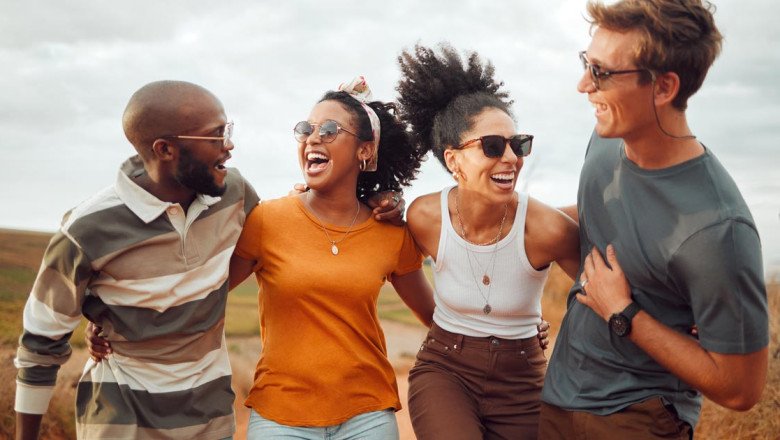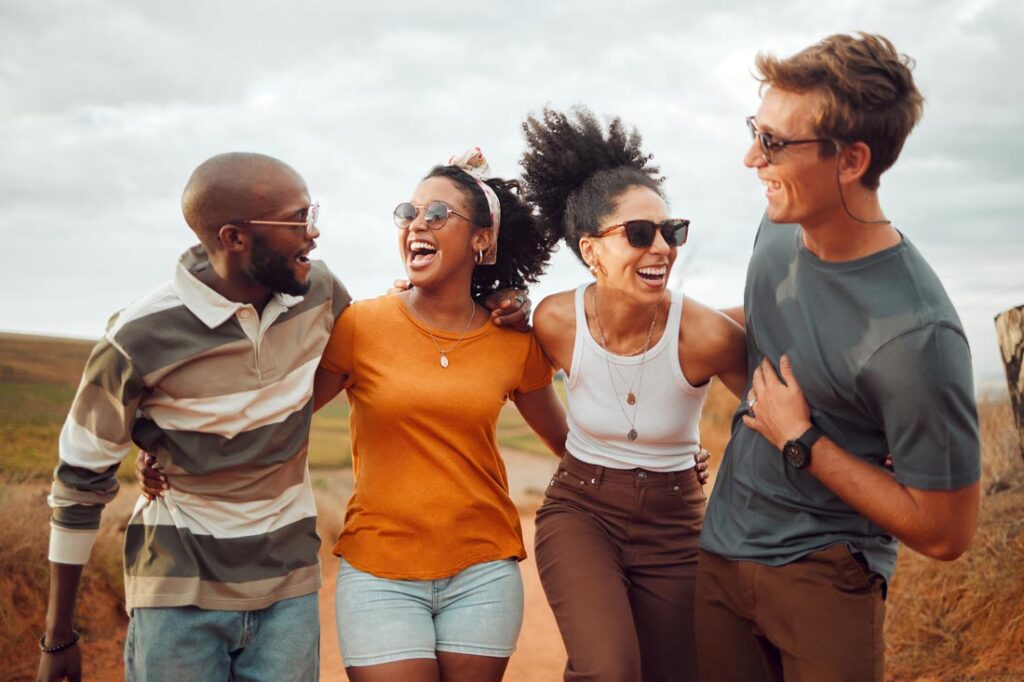
views
Quick Links
SECTIONS
- Business
- Entertainment
- Future of Work
- Health & Wellness
- Lifestyle
- Money
- Personal Development
- Professional Development
- Relationships
- SUCCESS Bestsellers
- Business
- Entertainment
- Future of Work
- Health & Wellness
- Lifestyle
- Money
- Personal Development
- Professional Development
- Relationships
- SUCCESS Bestsellers
JOIN US
- SUCCESS+
- SUCCESS Coaching
- Speakers Bureau
- SUCCESS Events
- SUCCESS Space
- Newsletter
- Daily SMS
- Subscribe
- Shop the SUCCESS Store
- SUCCESS+
- SUCCESS Coaching
- Speakers Bureau
- SUCCESS Events
- SUCCESS Space
- Newsletter
- Daily SMS
- Subscribe
- Shop the SUCCESS Store
GET IN TOUCH
CONNECT
Instagram Facebook Tiktok Linkedin Pinterest X-twitterMORE
 Get SUCCESS® Magazine PLUS 80+ Hours of Exclusive Training (& More!) to Multiply Your Earning Potential
SUBSCRIBE TODAY!
Get SUCCESS® Magazine PLUS 80+ Hours of Exclusive Training (& More!) to Multiply Your Earning Potential
SUBSCRIBE TODAY!
Save Up to 20% Before Oct. 2!
BOOKMARK Share TABLE OF CONTENTS
TABLE OF CONTENTS


I hiked the Grand Canyon with a few girlfriends this past summer. Returning to my ordinary life as a wife and mother of three young children, I noticed that my emotional health had significantly improved beyond what I expected. I felt invigorated and inspired long after the endorphins and excitement from my adventure had worn off. Weeks later, I wondered if science could explain why a challenging two-day hike with friends had resulted in such an upgrade in my emotional health.
Curious, I took to the internet and found an article from Harvard that focused on oxytocin, known as the “love hormone.” I discovered that while it’s primarily noted for its role in childbirth, oxytocin also plays an important role in emotionally bonding with others. Further, oxytocin levels increase with exercise. Were these combined factors the reason I felt better after my hiking trip with friends?
Psychotherapist Kristie Tse of Uncover Mental Health Counseling believes so. Social activities, from the simply engaging to the deeply intimate, encourage the release of oxytocin, and as a result, fuel feelings of trust, empathy and bonding, she says. In her practice, she observes how oxytocin helps her clients emotionally regulate and foster more meaningful connections.
Dermatologist Nicole Hayre, M.D., began studying oxytocin when her longtime patients’ skin looked different depending on their life circumstances. Hayre noticed those in happy relationships had glowing, healthier-looking skin, while those who lost a love (to a breakup, death, etc.) looked sallow and depleted. In her groundbreaking study, she found an almost linear correlation between higher oxytocin levels and more youthful-looking skin.
But oxytocin isn’t simply good for your skin—it benefits social-emotional health, too.
According to Mary Poffenroth, Ph.D., a neurohacking biopsychologist and author of Brave New You, oxytocin helps individuals feel more connected to their communities by reducing social anxiety and stress during interactions. They also experience more “enjoyable emotions like calm and care from social exchanges that motivate continuing bonds,” Poffenroth shares.
Further research indicates the surprising finding that the effect of oxytocin is greater when social interactions aren’t with strangers or casual acquaintances, but with close friends and family. Paul J. Zak, Ph.D., a neuroscientist who spent 20 years studying oxytocin, dopamine and social behavior, says these experiences have high social-emotional value for us as humans, helping us build up an “emotional fitness” network he calls “Immersion.”
Research shows that rich social connections are required for happiness. Can we define “rich?” Zak and his team say yes. By mapping the relationship between subtle changes in cranial nerve activity on cardiac rhythms and Immersion, they identified distinct signals that help measure the value of a person’s social-emotional experiences throughout a day.
This connection is especially important in this post-pandemic time when behavioral scientists are recording an epidemic of loneliness. “We need to give people a way to measure and manage their own mental health,” Zak says. His studies show that people should get six peak Immersion moments a day to be emotionally healthy. Zak even developed a free app called SIX, so that, like steps, calories and heart rates, people can track their Immersion.
Immersion is unique to every individual. Tse says that the “intensity and context of the interaction influence the amount of oxytocin released.” For instance, dining with a romantic partner might yield higher oxytocin levels due to the intimacy and emotional closeness than, say, watching football and drinking a beer with friends.
Personalities are another factor to consider. “People who are warm, empathic and agreeable have more peak Immersion moments,” says Zak. “It also depends on the state one finds oneself in: Work often provides peak Immersion moments because there are goals and people we’re working with. Having an adventure with friends is similarly a good peak provider, but walking alone down 5th Avenue in NYC, probably not,” Zak explains.
A surefire way to increase oxytocin, Zak says, is shared movement. Engaging in moderate exercise offers the brain dopamine and endorphins to feel good, while oxytocin bonds you to those you’re participating in activity alongside. So that surge of happiness I received from my Grand Canyon hike with friends? It has scientific backing.
Of course, you don’t have to participate in a challenging hike to reap the benefits of oxytocin.
Sanam Hafeez, a neuropsychologist and director of Comprehend the Mind, shares these simple, practical ways to strengthen your positive emotional connections:
We build up our emotional resilience when we make the effort to connect with each other. Because the brain has neuroplasticity, or the ability to adapt, we can train ourselves to be more emotionally present and open to those we care about. This, in turn, improves our relationships, reduces stress and boosts our immune system, Zak says. At the end of the day, it’s about loving your friends and experiencing all the goodness that friendships offer.
Photo by PeopleImages.com – Yuri A/Shutterstock.com
5473 Blair Road, Suite 100
PMB 30053
Dallas, TX 75231
Copyright © 2024 SUCCESS Magazine. All rights reserved.
Save Up to 20% Before Oct. 2!
Copyright © 2024 SUCCESS Magazine. All rights reserved.
Unlock the Latest Knowledge that Can You Help You Achieve More in Life with More Confidence
Print and Digital Options Available
Oops!
You’ve reached your limit of free
articles for this month!
(plus get access to hundreds of resources designed
to help you excel in life and business)
Please enter your username or email address. You will receive an email message to log in.
No, thanks, I’m not interested in personal growth.
Plus, get access to daily inspiration, weekly newsletters and podcasts, and occasional updates from us.
By signing up you are also added to SUCCESS® emails. You can easily unsubscribe at anytime. By clicking above, you agree to our Privacy Policy and Terms of Use.
Please enter your username or email address. You will receive an email message to log in.
Get unlimited access to SUCCESS®
(+ a bunch of extras)! Learn more.
Please enter your username or email address. You will receive an email message to log in.
The exclusive article you’re trying to view is for subscribers only.
(plus get access to hundreds of resources designed
to help you excel in life and business)
Please enter your username or email address. You will receive an email message to log in.
https://www.success.com/surprising-role-oxytocin-plays-in-friendships/























Comments
0 comment